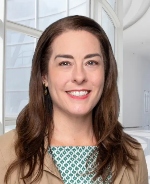
A kaleidoscope, as described by Merriam-Webster Dictionary, is “a changing pattern or scene,” “a succession of changing phases or actions,” and “a diverse collection” (3). Additionally, synonyms of kaleidoscope include a “mixed bag,” “phantasmagoria,” and my favorite, a “treasure.” What if we consider a metaphor that caregiving is like a kaleidoscope? That it’s an ever-changing collection of meaningful moments fueled by love, responsibility, and hope, and the treasures within the caregiving experience can be highlighted and celebrated to bring comfort.
Many people identify as being a caregiver, through physical or emotional care, or by protecting and providing for others. In this way, we are all caregivers, connected by a universal, deeply ingrained bond of love and compassion. Research indicates more than one in five Americans are “informal caregivers,” providing unpaid care and assistance to loved ones (1). Some may minimize this role, believing that a caregiver is a nurse or paid professional. In actuality, a caregiver is more than a paid or trained position. It is a role held by many without training or resources, and carries lasting psychological, emotional, and social implications.
A snapshot of the percentages of informal caregivers and the challenges they face is described in depth by the National Cancer Institute. In their interview study, there are four challenges agreed upon by the patients and caregivers, which are useful for oncology clinicians to be aware of. These include:
- Emotionally processing the initial diagnosis or recurrence.
- Managing the practical and emotional aspects of patient care.
- Facing an uncertain future.
- Encountering symptom-related suffering. (2)
My personal experience as a caregiver began in September 2017, the day my spouse learned he had kidney cancer. It was not something he or I expected or realized could happen as he was at the young age of 37. Married for just two years and at the start of the newest chapter of our lives, his cancer diagnosis took us by surprise. Shock, disbelief, fear, anger, grief – all the typical emotions one can experience when diagnosed with cancer were also experienced by me, the caregiver.
Current state, eight years in remission are in the books, and each clear scan helps us breathe a bit easier. Although his cancer journey was treated with one surgery and no ongoing chemotherapy, radiation, or medication required, the effects of that one month from diagnosis to “cure” as the doctor said, was intense. It changed who we both were as individuals and as a family unit. I took on the role of emotional supporter, coordinator to schedule appointments and manage paperwork, and administrator of sorts to take the lead on the home front, on top of working full-time and keeping it all “afloat.” After surgery, my role as caregiver changed, just as the image changes when turning a kaleidoscope. I was then a part-time nurse to aid in his healing process as he recovered and gained strength. As the body healed, the mind began to heal, perhaps at a slower pace, as those wounds can’t be stitched up. As life returned to “normal,” or we found a new normal, I felt the caregiver role transform. Again, the kaleidoscope turned, and I went from caregiver to care partner. There was less doing and fixing, and more of a need to be present, accepting, and still as he found his footing again. This was hard. Learning to make space for the anger, fear, grief, and vulnerability, and allow those to take center stage, felt more abstract and unfamiliar.
Just as the kaleidoscope turns and the images change, one has to pause to let this new life take shape and come into focus. He journeyed through his experience as a person who survived cancer, just as I journeyed through mine as a caregiver. Being a witness to cancer’s lasting impact, I observed the emotional variances over the years as significant dates and anniversaries came up, and over time learned the subtle ways to show support. As a care partner, I bore witness to the psychological impact cancer had and sensed the fears and caution that now accompanied him, and discovered this didn’t just happen to him, it happened to us. I learned that my role in caring was no longer to schedule the appointments or clean the wound, but to be a steady presence that said, “I’m here with you.” It taught me the value of being present for love, pain, and everything in between. And perhaps to appreciate and find the treasure and beauty in the kaleidoscope of caregiving.
References
- Abazari A, Chatterjee S, Moniruzzaman M. Understanding Cancer Caregiving and Predicting Burden: An Analytics and Machine Learning Approach. AMIA Annu Symp Proc. 2024 Jan 11;2023:243-252. PMID: 38222371; PMCID: PMC10785947.
- PDQ® Supportive and Palliative Care Editorial Board. PDQ Informal Caregivers in Cancer. Bethesda, MD: National Cancer Institute. Updated <05/06/2025>. Available at: https://www.cancer.gov/about-cancer/coping/family-friends/family-caregivers-hp-pdq. Accessed <10/5/2025>. [PMID: 26389284]
- “Kaleidoscope.” Merriam-Webster.com Dictionary, Merriam-Webster, https://www.merriam-webster.com/dictionary/kaleidoscope. Accessed 5 Oct. 2025.
Additional Resources

